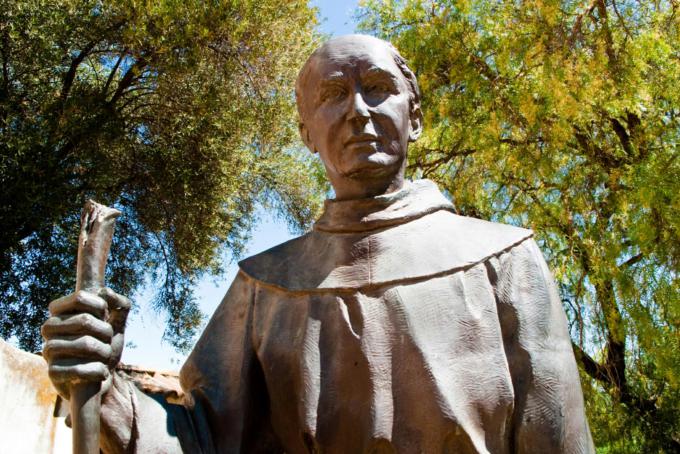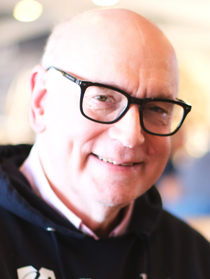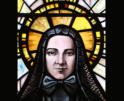
Culture
In so deciding to canonize Blessed Junipero, Pope Francis seems to be following Serra's own motto, "Always forward, never back." He is celebrating what he calls "figures who have done a powerful evangelization and are in harmony with the spirituality and the theology of the Gospel of Joy."

Duncan
During his plane flight from Sri Lanka to the Philippines on January 15, Pope Francis held an impromptu press conference, as is his custom. But before the questions began, he had an announcement about the meaning of the previous day's canonization of St. Joseph Vaz, the first Sri Lankan to be declared a saint. He said that "these canonizations were done following the procedure foreseen in Church law called equivalent canonization. It is used when for some time a man or woman is blessed, and has the veneration of the people of God, in fact is venerated as a saint, and the procedure of the miracle is not done. Well, I have chosen to do this for persons who have been great evangelizers...And now, in September, God willing, I will canonize Junipero Serra in the United States, because he has been the evangelizer of the western United States."
And so the Apostle of California, whose statue is one of the two representing California in the United States Capitol (the other is of Ronald Reagan), will become the thirteenth American saint and just the third American male to be canonized. Of course, this Spanish Franciscan priest from Mallorca, who lived from 1713-1784, died well before California became part of the United States. In that regard, his situation is analogous to that of Saint Damien of Molokai, Hawaii, a Belgian Sacred Heart missionary to the lepers, who died before Hawaii became part of the United States. (Saint Damien's statue is one of the two representing Hawaii in the U.S. Capitol building.) St. John Neumann was the first American male to be canonized, though he too was an immigrant missionary, from Bohemia; but dying as bishop of Philadelphia on the eve of the American Civil War, he had at least become an American citizen. (Which explains why some of us are anxious to have a native-born U.S. citizen like Archbishop Fulton J. Sheen soon raised to the altars!)
The pope's surprise announcement of the upcoming canonization of Blessed Junipero Serra is wonderful news! It will be the first time a canonization has occurred in the United States, and by no less than the pope himself.
I discovered via Wikipedia, my favorite quick reference work, that "During the American Revolutionary War (1775-1783), Father Serra took up a collection from his mission parishes throughout California. The total money collected amounted to roughly $137, but the money was sent to General George Washington."
To be sure, there is some controversy associated with Father Serra's cause of canonization because of the mistreatment of the native Americans by the Spaniards. But Serra resisted efforts to enslave the native Americans, and when his San Diego mission was sacked in 1775 and three Spaniards were killed, the perpetrators were arrested and the viceroy wanted them executed. According to the January 16 Los Angeles Times, "Serra called for the prisoners' release and pleaded their case to the viceroy in a letter: 'As to the killer, let him live so that he can be saved, for that is the purpose of our coming here and its sole justification.' In so doing, [biographer] Orfalea said, Serra modeled his life on the Gospel of love--not a desire for land or gold."
In so deciding to canonize Blessed Junipero, Pope Francis seems to be following Serra's own motto, "Always forward, never back." He is celebrating what he calls "figures who have done a powerful evangelization and are in harmony with the spirituality and the theology of the Gospel of Joy."
DWIGHT G. DUNCAN IS PROFESSOR AT UMASS SCHOOL OF LAW DARTMOUTH. HE HOLDS DEGREES IN BOTH CIVIL AND CANON LAW.
- Dwight G. Duncan is professor at UMass School of Law Dartmouth. He holds degrees in both civil and canon law.
Recent articles in the Culture & Events section
-
Scripture Reflection for April 14, 2024, Third Sunday of EasterDeacon Greg Kandra
-
St. Helena's House is established in the South EndThomas Lester
-
Is this synodality?Russell Shaw
-
Poking the hornet's nest of IVFFather Tadeusz Pacholczyk
-
A eucharistic word: MissionMichael R. Heinlein


















